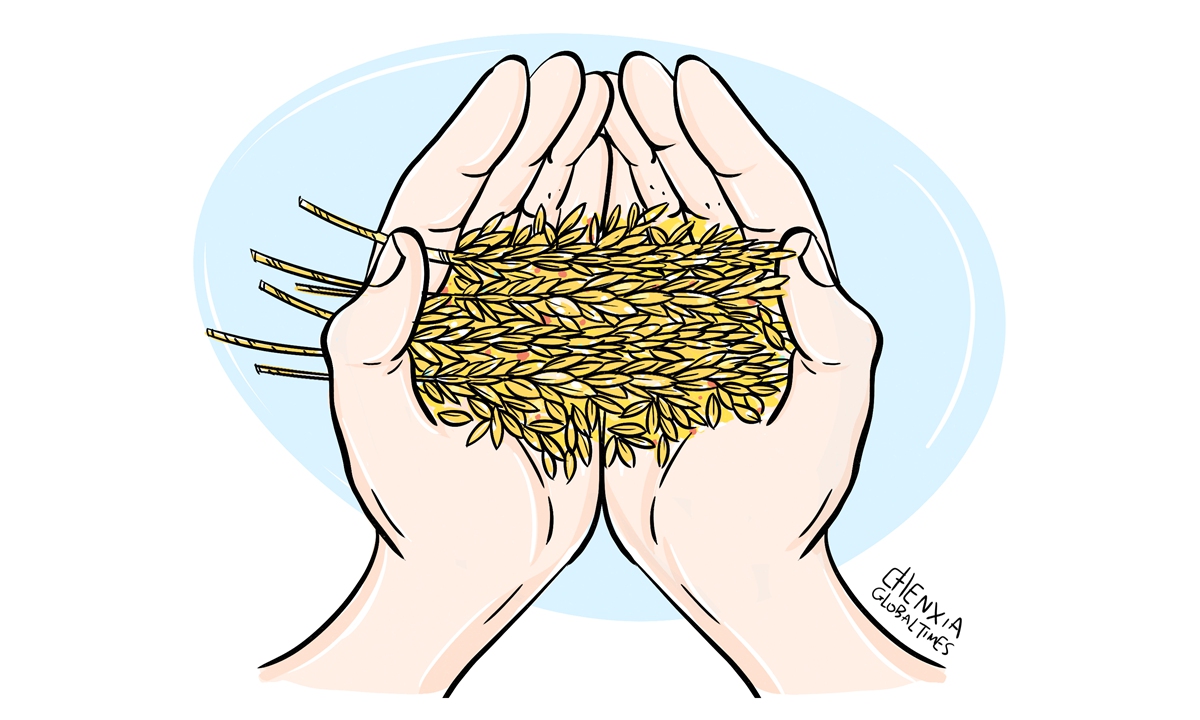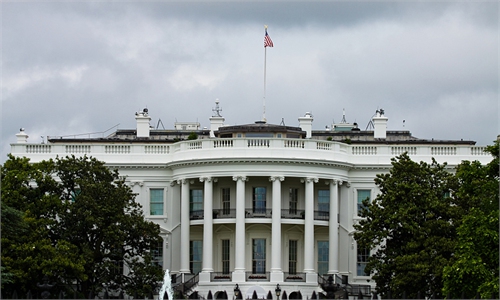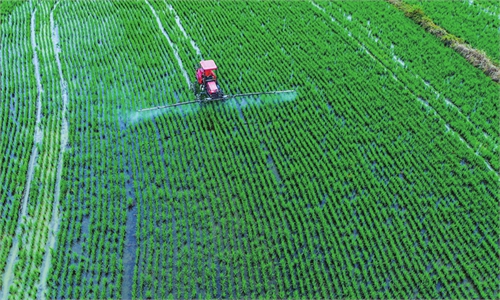China capable of ensuring food security despite more frequent extreme weather events

Illustration: Chen Xia/GT
There have been more voices than ever before expressing concerns about global food security. Some Western media outlets have recently published articles claiming that the world's major grain-producing regions, including China, have experienced more frequent extreme weather events due to global warming, posing a threat to crop output.Concerns regarding China's food security are emerging. However, given the current situation, China is fully capable of ensuring food security for its 1.4 billion people. Despite numerous challenges, statistics suggest that the country's food security has actually been well safeguarded with consecutive years of abundant harvests, sufficient grain reserves, and ample market supply.
In 2023, China's total grain output reached a record high of 1.39 trillion jin (650 million tons), an increase of 1.3 percent over the previous year. It has remained stable at above 1.3 trillion jin for nine consecutive years. The annual production of basic food crops consistently exceeds demand, ensuring absolute security.
Now, the country has entered its summer harvest season, which usually spans from May to late June. As of June 15, China had harvested around 310 million mu (20.68 million hectares) of winter wheat, with harvest progress surpassing 90 percent. Based on the current situation, experts predict the country will see another bumper grain harvest this summer. Traditionally, grain output in summer accounts for roughly a quarter of the annual total.
China has witnessed a boom in agricultural investment in recent years. The country has increased input and raised food production by investing more in agriculture, building up the capability to resist natural disasters and increasing levels of self-sufficiency. While extreme weather events, such as storms and floods, may bring challenges to China's agriculture sector, there is no need to worry about the country's food security. China is able to ensure an adequate food supply for its 1.4 billion people.
China has managed to feed about one fifth of the world's population with a quarter of the world's total food production on less than 9 percent of the world's arable land. This achievement is a significant contribution to global food security.
Climate change has become an increasing threat to the world, with concerns growing over more frequent extreme weather negatively impacting global crop output. Against this backdrop, China needs to attach more importance to risk prevention, further improve productivity and guarantee basic self-sufficiency in cereal grains and absolute grain security.
Greater efforts do not mean China has not yet established sufficient soft power in safeguarding food security, but rather that we should raise our consciousness of risk prevention, given the increasing occurrence of extreme weather events caused by climate change in recent years. This is what China, as a responsible major country, should do.
One option is to promote the innovation-driven development and supply-side structural reform in the agricultural sector. For instance, to further eliminate food security risks, it is necessary to increase scientific and technological investment in China's seed industry.
In the meantime, against a backdrop of global warming and a convergence of global challenges, poverty and hunger persist as pressing global challenges. The international community should prioritize food security and work together to adopt practical measures through international cooperation.
The climate crisis is one of the leading causes of the rise in global hunger. This again proves the necessity and urgency of international cooperation. China has always been an active participant and contributor in global agricultural cooperation. The country has provided a huge amount of emergency humanitarian food aid to other developing countries in need, and will continue to make new efforts to promote global food security.
The author is a reporter with the Global Times. bizopinion@globaltimes.com.cn



